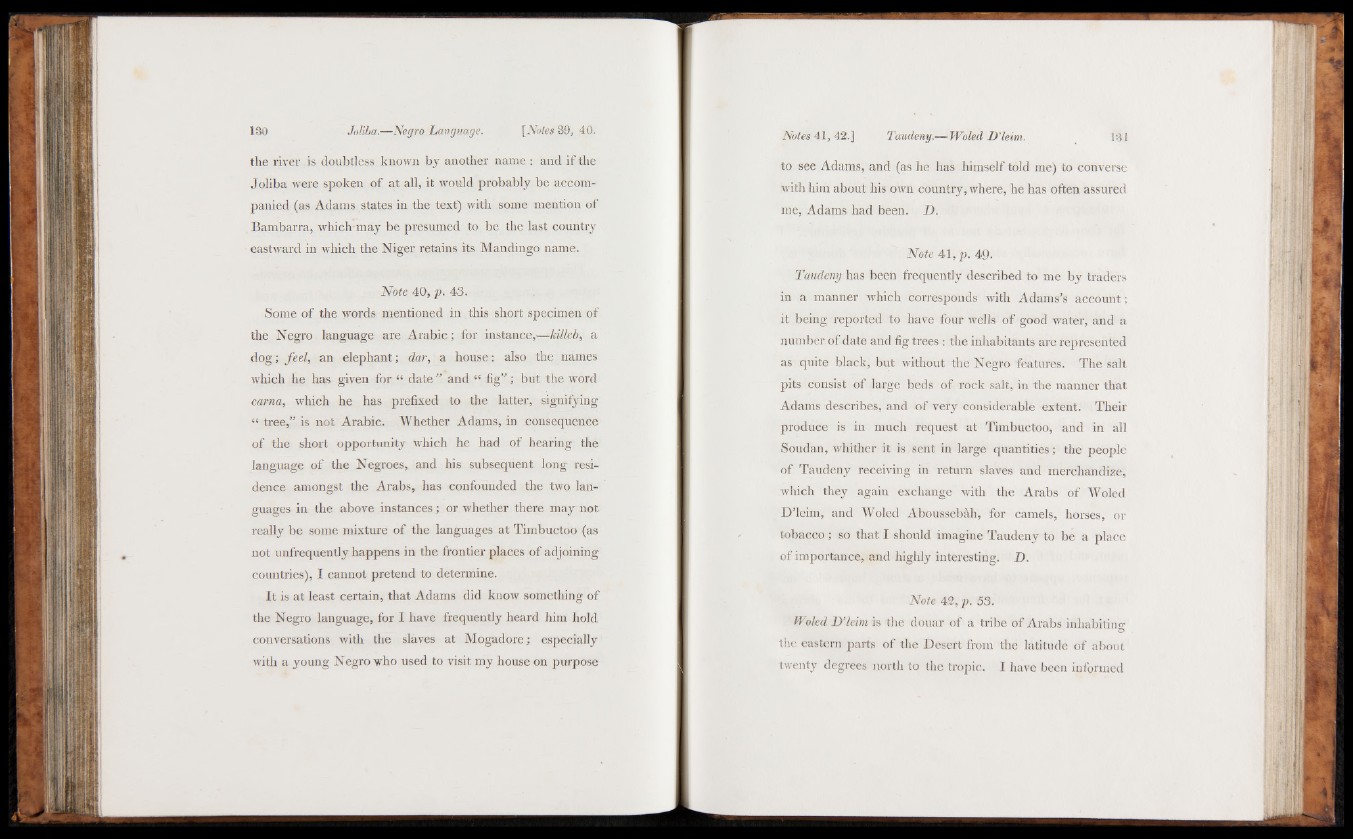
the river is doubtless known by another name : and if the
Joliba were spoken of at all, it would probably be accompanied
(as Adams states in the text) with some mention of
Bambarra, which may be presumed to be the last country
eastward in which the Niger retains its Mandingo name.
Note 40, p. 43.
Some of the words mentioned in this short specimen of
the Negro language are Arabic; for instance,—killeb, a
dog; feel, an elephant; dar, a house: also the names
which he has given for “ date ” and “ fig” ; but the word
carna, which he has prefixed to the latter, signifying
“ tree,” is not Arabic. Whether Adams, in consequence
of the short opportunity which he had of hearing the
language of the Negroes, and his subsequent long residence
amongst the Arabs, has confounded the two languages
in the above instances; or whether there may not
really be some mixture of the languages at Timbuctoo (as
not unfrequently happens in the frontier places of adjoining
countries), I cannot pretend to determine.
It is at least certain, that Adams did know something of
the Negro language, for I have frequently heard him hold
conversations with the slaves at Mogadore; especially
with a young Negro who used to visit my house on purpose
to see Adams, and (as he has himself told me) to converse
with him about his own country, where, he has often assured
me, Adams had been. D.
Note 41, p. 49-
Taudeny has been frequently described to me by traders
in a manner which corresponds with Adams's account;
it being reported to have four wells of good water, and a
number of date and fig trees : the inhabitants are represented
as quite black, but without the Negro features. The salt
pits consist of large beds of rock salt, in the manner that
Adams describes, and of very considerable extent. Their
produce is in much request at Timbuctoo, and in all
Soudan, whither it is sent in large quantities; the people
of Taudeny receiving in return slaves and merchandize,
which they again exchange with the Arabs of Woled
D'leirn, and Woled Aboussebah, for camels, horses, or
tobacco; so that I should imagine Taudeny to be a place
of importance, and highly interesting. D.
Note 42, p. 53.
Woled D’leirn is the douar of a tribe of Arabs inhabiting
the eastern parts of the Desert from the latitude of about
twenty degrees north to the tropic. I have been informed